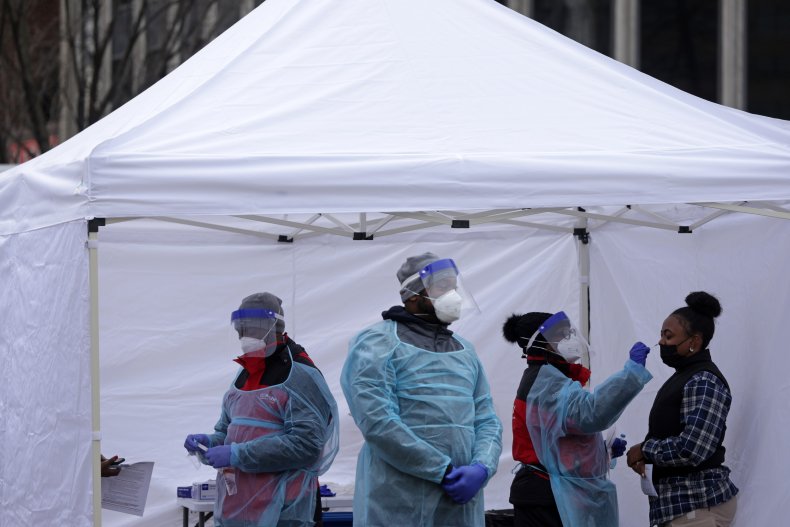Despite having a relatively high vaccination rate of 85 percent, Washington D.C. currently has the highest rate of COVID-19 infections across the country.
An analysis last updated on Monday by NPR using data from Johns Hopkins University and the U.S. Census Bureau shows that D.C. is averaging 169 cases per 100,000 people.
New York is experiencing the second-highest rate with 164 cases per 100,000 people.
The D.C. region has seen a massive surge in infections over the last week, reporting an average of 1,192 new daily cases in the last seven days and a 555 percent increase over the last two weeks.
The rising cases seem to be driven by the highly transmissible Omicron variant, which early data has shown to be four times more contagious than the original strain and more resistant to the current COVID19 vaccines, antibody treatments and booster shots.
Omicron's takeover as the most dominant strain in the U.S. comes at a time when vaccine efficacy has dropped and resulted in waning immunity even in Americans who have gotten their shots.

This means that while residents of the D.C. area may be less likely to suffer severe illness, hospitalization or death due to its 85 percent vaccination rate, the virus is still spreading rampantly among its population.
According to the city's government, more than 85 percent of residents have received at least one dose of a vaccine and nearly 67 percent have been fully vaccinated.
The nation's capital is also reported an estimated 2 percent of breakthrough cases.
The analysis cited D.C.'s relatively young population for its latest spike in cases.
Demographically, the city skews younger than the rest of the country with roughly 50 percent of D.C. residents being aged 20 to 49.
"Before vaccines were available, we learned that transmission in the United States was largely driven by adults 20 to 49 years of age," Dr. Neil Sehgal, assistant professor of health policy and management at the University of Maryland School of Public Health, told NPR. "People age 20-49 are simply more transmission-efficient."
Younger people have been found to be more likely to transmit COVID-19 due to circumstances including increased likelihood of employment that requires in-person work, social gatherings outside households, and household transmission from raising young children.
Last week, D.C. Mayor Muriel Bowser declared a state of emergency and reimplemented a series of public health mandates, including mandatory masks in indoor settings. Beginning January 15, the city's restaurants, bars, gyms and entertainment venues will also require proof of vaccination for individuals aged 12 and older.
Patrons will be allowed to indicate that they've received only one of two doses when the order goes into effect but those requirements will change to a completed vaccine series beginning February 15.

Post a Comment